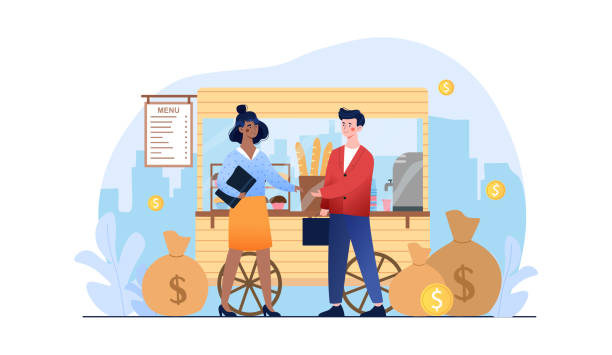
In order to secure most small business loans, businesses have to provide three years of financial data to demonstrate that they can earn enough to make their monthly loan payment. However, for food industry businesses, the last few years may not be indicative of typical performance because of several pandemic-era relief programs and changes in typical revenue patterns. Here are some helpful tips for securing a loan from the SBA when your most recent financial performance hasn’t been consistent.
Food industry businesses looking to expand or refinance debt can benefit significantly from Small Business Administration (SBA) loans. Whether purchasing new equipment, opening additional locations, or managing monthly expenses, SBA loans offer flexibility and favorable terms to fuel your business growth.
How SBA Loans Support Business Expansion
While SBA loans are often associated with location expansions, they can be used for various business growth purposes, including:
- Real Estate Expansion: If you’re looking to open a new restaurant location, purchase a warehouse, or build a distribution center, SBA 504 loans are excellent options. These loans can help finance real estate purchases, renovations, and even the construction of new buildings.
-
Equipment Financing: SBA 504 loans are also a great tool for purchasing the necessary equipment to keep your food business running smoothly. Whether it’s industrial-grade ovens, refrigeration units, or specialized kitchen equipment, equipment financing through SBA loans can cover up to 90% of equipment costs. This means you can spread payments over several years while using the equipment to generate revenue.
-
Hiring and Training Staff: Growing your workforce is critical when expanding your business. SBA loans can be used to cover the costs of hiring, training, and onboarding new employees as you scale.
-
Inventory and Working Capital: You may need additional working capital or inventory to meet increased customer demand. SBA 7(a) loans can help you manage these costs by providing funds to cover short-term needs during expansion
- Marketing and Brand Growth: When expanding, getting the word out is crucial. SBA loans can be used for marketing initiatives, whether that’s developing new promotional materials, advertising, or enhancing your online presence
Food Businesses That Have Thrived with SBA Loans
Many food businesses have leveraged SBA loans to scale their operations. Here are a few examples of how SBA financing has empowered food industry businesses:
- Northstar Café: This popular café secured funding to build a stand-alone restaurant, which will allow it to meet growing customer demand and enhance its dining experience.
- Upper Cup Coffee: This coffee shop used SBA financing to purchase a warehouse, expanding its capacity to manage increased demand and streamline operations.
- AmBari Nutrition: By constructing a new distribution center, AmBari optimized its supply chain, ensuring faster deliveries and higher customer satisfaction.
These real-world examples show how SBA loans can fuel expansion and growth in the food sector.
Steps to Apply for an SBA Loan
Applying for an SBA loan requires careful planning and documentation. Follow these steps to ensure your application is successful:
- Prepare a Solid Business Plan: Lenders will want a comprehensive business plan that outlines how you’ll use the loan and how it will support your business growth. Include financial projections and a clear explanation of how the loan will help your operations.
- Organize Financial Documents: Gather personal and business financial statements, tax returns, ownership information, and cash flow projections. Provide explanations for any sizable shifts (either positive or negative) in revenue and how the business managed the situation.
- Work with SBA-Approved Lenders: Working with approved SBA lenders, like OSDC, can help you navigate the various steps in an SBA application. They will guide you through the application process, ensuring all necessary paperwork is in place and that you meet the SBA loan qualifications.
Avoid Common Mistakes in the Application Process
Mistakes during the loan application process can lead to delays or even denials. Here’s what to watch out for:
- Not Meeting Basic Eligibility Requirements: To be eligible, businesses must operate for profit, have a physical presence in the U.S., and meet the SBA loan qualifications. It’s crucial to ensure your business fits within these guidelines before applying.
- No Down Payment: SBA loans require a 10% down payment and a personal guarantee. The down payment requirement can be met in various ways, not just cash. Be prepared to talk with your lender about all available collateral and equity in the form of property, trusts, or other investments.
- Inadequate Documentation: Missing or incomplete documentation is one of the most common reasons for application delays. Make sure you have all necessary financials and personal guarantees organized and ready.
- Poor Credit History: Small Business Administration loans generally require good credit. Be proactive sharing information about your credit history with your lender so that they can work with you to overcome any negative information on your file.
SBA loans offer incredible opportunities for food businesses to expand their operations in various ways. Whether you’re adding a new location, investing in a larger workforce, or improving your marketing reach, SBA loans provide flexible funding options.
By following these tips and working with an SBA-approved lender, you can confidently apply for an SBA loan and take your food industry business to the next level.
